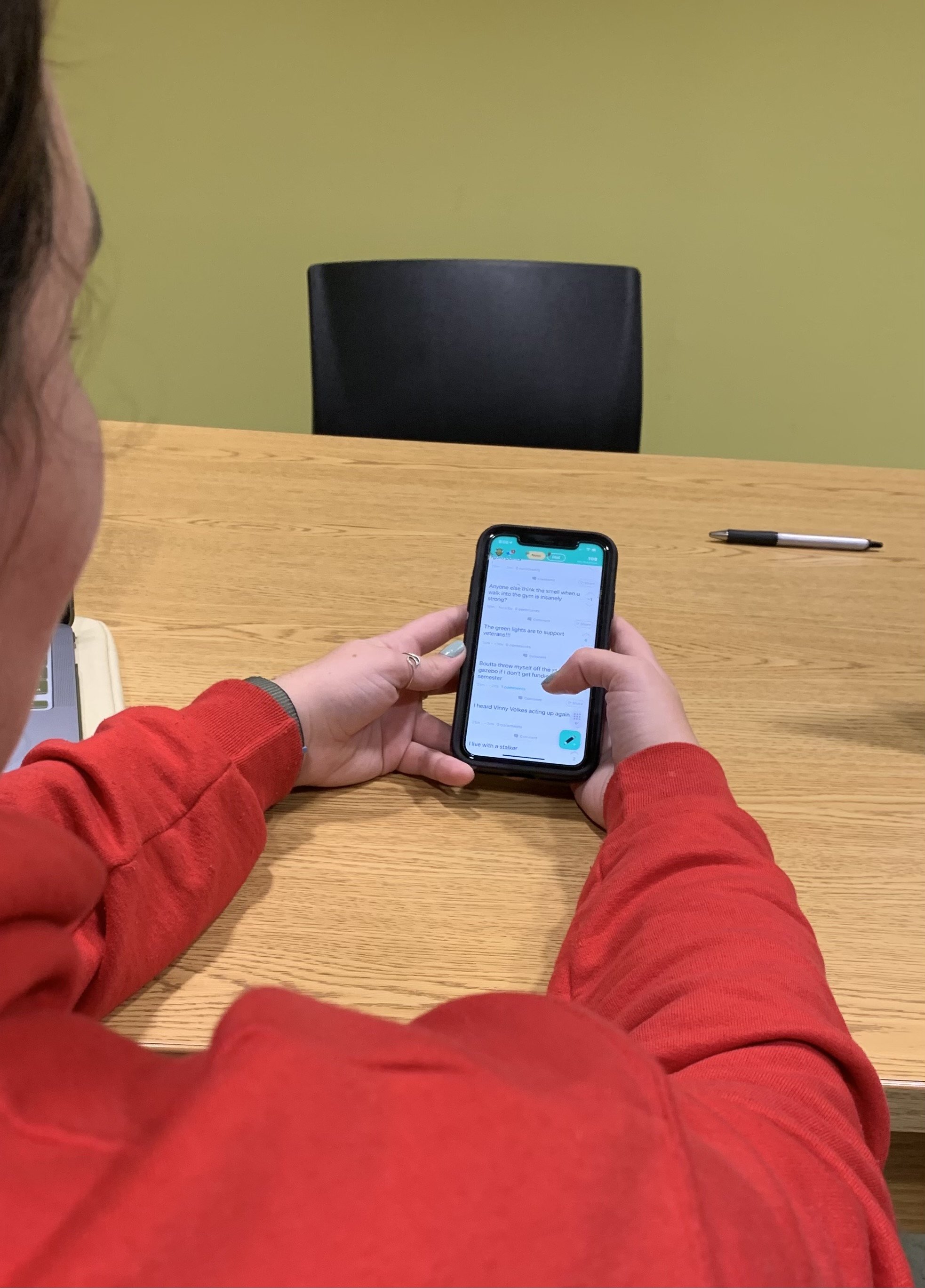Students Discuss Bullying on Yik Yak
Charlotte Delvecchio '24 scrolls through Yik Yak. Source: Lily Jandrisevits '25
Yik Yak, an app that allows users to write posts anonymously to anyone within 5 miles, has gained popularity at Marist College. Common posts range from complaints about dining hall food, making jokes about the football team or anything a person thinks will make others laugh or get a reaction.
Some have complained that Yik Yak is used for bullying because of its anonymous nature. The app itself has acknowledged how it can be used for bullying, giving a statement that says, "we're committed to combating bullying on our platform by any means necessary." When you first download the app, it states that if anyone violates their guidelines, they will immediately be banned.
However, many Marist students have mixed reactions, seeing both the good and bad the app can provide.
"At first, it was very funny and more positive," said Emme Armstrong '25.
Brain McHugh '25 also said that he saw how the app is positive and recognized it "is a good way to connect the community."
However, both Armstrong and McHugh stated that they had seen some forms of bullying on the app.
Armstrong said she was particularly disappointed by what she described as "the Cab lady incident," in which a bunch of users made jokes about a woman that often works at the register in The Cabaret. "You leave Helena alone," said Armstrong, "she's doing you a service and helping you; stop being disrespectful."
Obidinma Egbokwu '23 said she does not use the app herself and has heard more "entertaining" and "positive" reactions rather than bullying. "If a lot of people are expressing discomfort, it is something that should be looked into, maybe not banned, but there should be an ability to censor some things," said Egbokwu, responding to the idea of banning the app at Marist.
"The app isn't the problem; the people using it are," said Egbokwu. "Really, anyone can bully on any social media app."
Armstrong agreed and said if the school considers a ban, "there's always going to be other platforms." She instead said that the app would lose popularity over time as people move on to the next big thing.
"It's disappointing that people would use the app in a bad way," said McHugh, "[but], I don't think banning it is the right solution."
Garrett Smith '24, one of the East End Representatives for SGA, said, "last Thursday morning, I saw multiple slanders that were homophobic. One uses a professor's full name and her genitalia as a personal vendetta against her, and I don't think we should be tolerant of these acts as an institution."
Student Body Vice President Caleb Davis '24 said, "there are some genuinely funny things, but what really got to me was when an individual came to me and mentioned a personal experience of what being slandered on that app did to them emotionally and mentally."
Davis elaborated that he had a personal experience over the summer where a student contacted him about concerns that another student may have harmed themself. He said he was "horrified that the worst happened" and "having experienced that, I just know something like that could happen."
Both Davis and Smith advocate for a ban of the app, seeing the harassment on the app outweighs any humor.
"I don't want to have to talk about what we could have done more; I want to see more action," said Davis.
